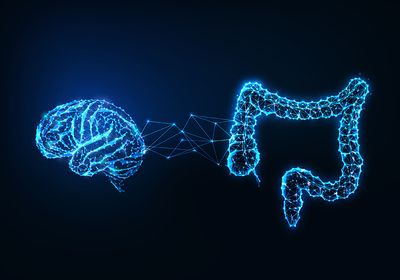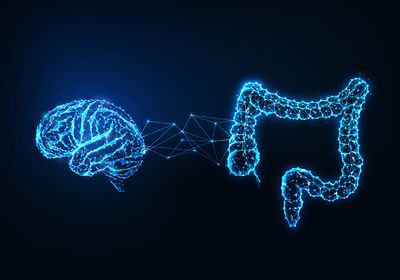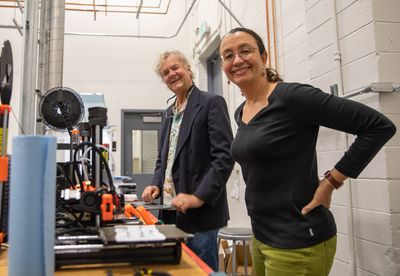ABOVE: Researchers reported a novel tool to explore the human gut-brain connection in a new study. © iStock, inkoly
Our organs constantly communicate a multitude of complex signals to the brain to keep the body functioning. Scientists have been puzzled by how the brain interprets and controls those signals since interoception, the process of sensing signals from the internal organs, is still poorly understood. In a study published in Nature Communications, researchers from the Laureate Institute for Brain Research (LIBR) reported a novel tool for measuring the gut-brain connection.1 Such a tool could help researchers identify response patterns in healthy and diseased populations.
Sahib Khalsa, a psychiatrist and neuroscientist at LIBR and coauthor of the study, is interested in how the nervous system influences our inner body perception, both in health and disease. “I study brain-body interactions in individuals with eating disorders. The common understanding is that they have a normal inner perception, but this does not match up with the reality of how they approach food,” Khalsa said.
See also “Gut-brain Axis Development Influences Brain Damage in Extremely Premature Infants”
To investigate how the brain reads the sensory signals from other organs, Khalsa’s team used a minimally invasive vibrating capsule to measure neural responses during gastrointestinal stimulation. The researchers repurposed a pill initially developed for chronic constipation, and gave it to 40 healthy adult male and female volunteers who swallowed the capsules when they had empty stomachs.2,3 Over the following hours, the researchers asked them to hit a button any time they felt vibrations in their body while they simultaneously measured their brain activities through electroencephalogram measurements.
The team first noted that the stomach sensations reliably correlated to the pill’s vibration levels. On comparing the perceptual assessment of the participants’ gut sensations with their brain activities, the researchers found that the vibrations associated with brain signals in the parieto-occipital area, suggesting its involvement in the neuronal perception of gut feelings. The researchers also noted that brain activity in this region positively correlated with the vibration intensity of the pill: the stronger the vibrations, the greater the measured brain responses.
Next, Khalsa and his team assessed how the gut signals affected other responses in the body by measuring changes in other physiological parameters while the capsule vibrated. The vibrations from the capsule stimulated rapid changes in other body signals, such as increased heart rate and sweats, highlighting that the gut-brain axis is interconnected with other organs.
See also “Gut Bacteria Contribute to Anorexia”
“It's an interesting study, but [it] almost opens more questions than answers,” said Nick Spencer, a neurophysiologist at Flinders University, who was not involved in the study. Spencer also noted that further research is still needed to bring such devices into clinical settings. “It will be necessary to perform more in-depth analyses, with more detailed controls,” he added.
Khalsa hopes that the device might offer a promising tool for measuring patients’ gut-brain sensitivity levels. In patients affected from a disruption of the gut-brain axis, the pill can help measure gut sensitivity compared to the normal population and adjust therapeutic intervention accordingly. Similarly, by using a vibrating pill associated with a drug, scientists could evaluate the whole-body response to a treatment rather than focusing on only a few parameters.
References
- Mayeli A, et al. Parieto-occipital ERP indicators of gut mechanosensation in humans. Nat Commun. 2023;14(1):3398.
- Nelson AD, et al. A single-center, prospective, double-blind, sham-controlled, randomized study of the effect of a vibrating capsule on colonic transit in patients with chronic constipation. Neurogastroenterol Motil. 2017;29(7):10.1111/nmo.13034.
- Rao SSC, et al. Randomized placebo-controlled phase 3 trial of vibrating capsule for chronic constipation. Gastroenterology. 2023;164(7):1202-1210.e6.






